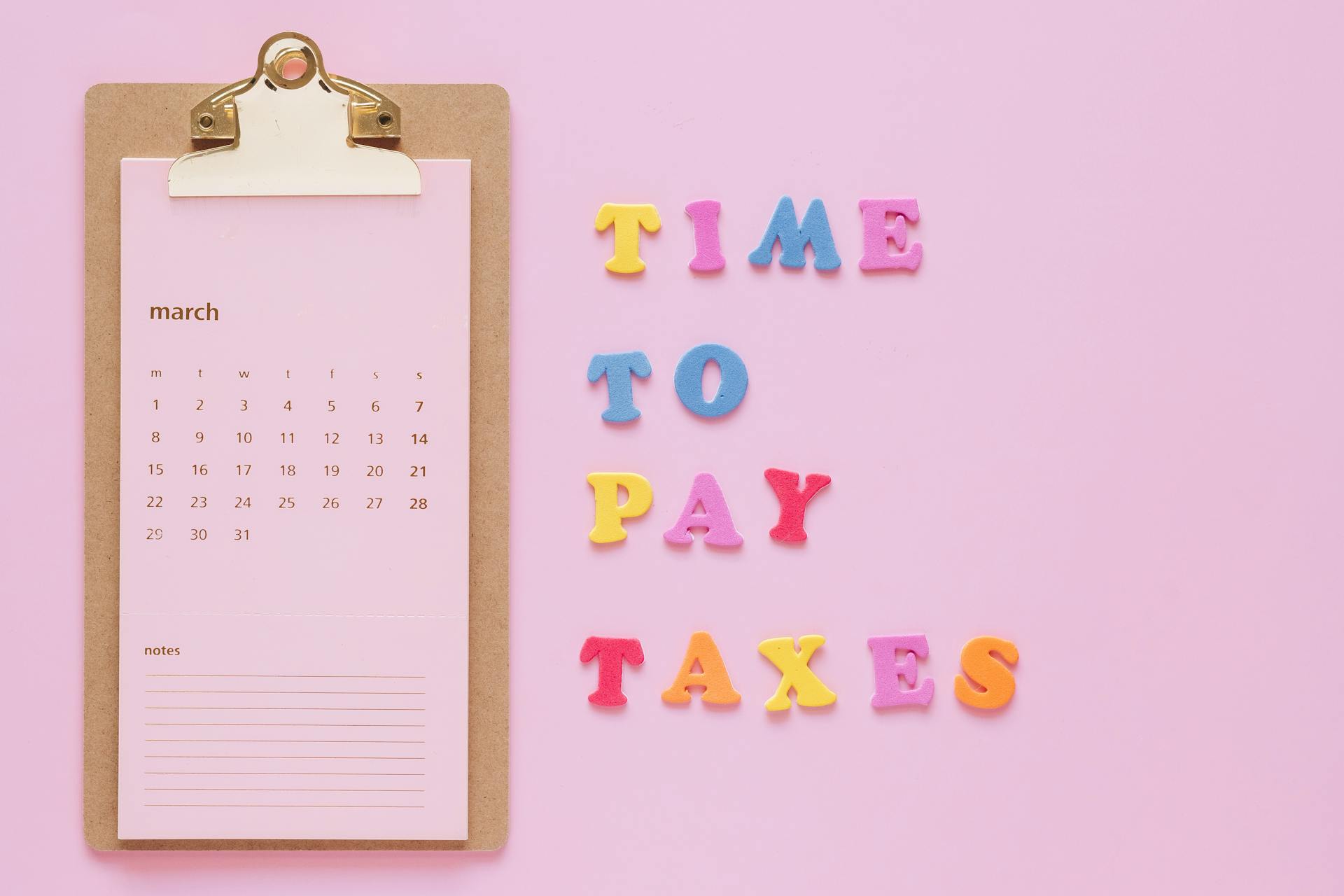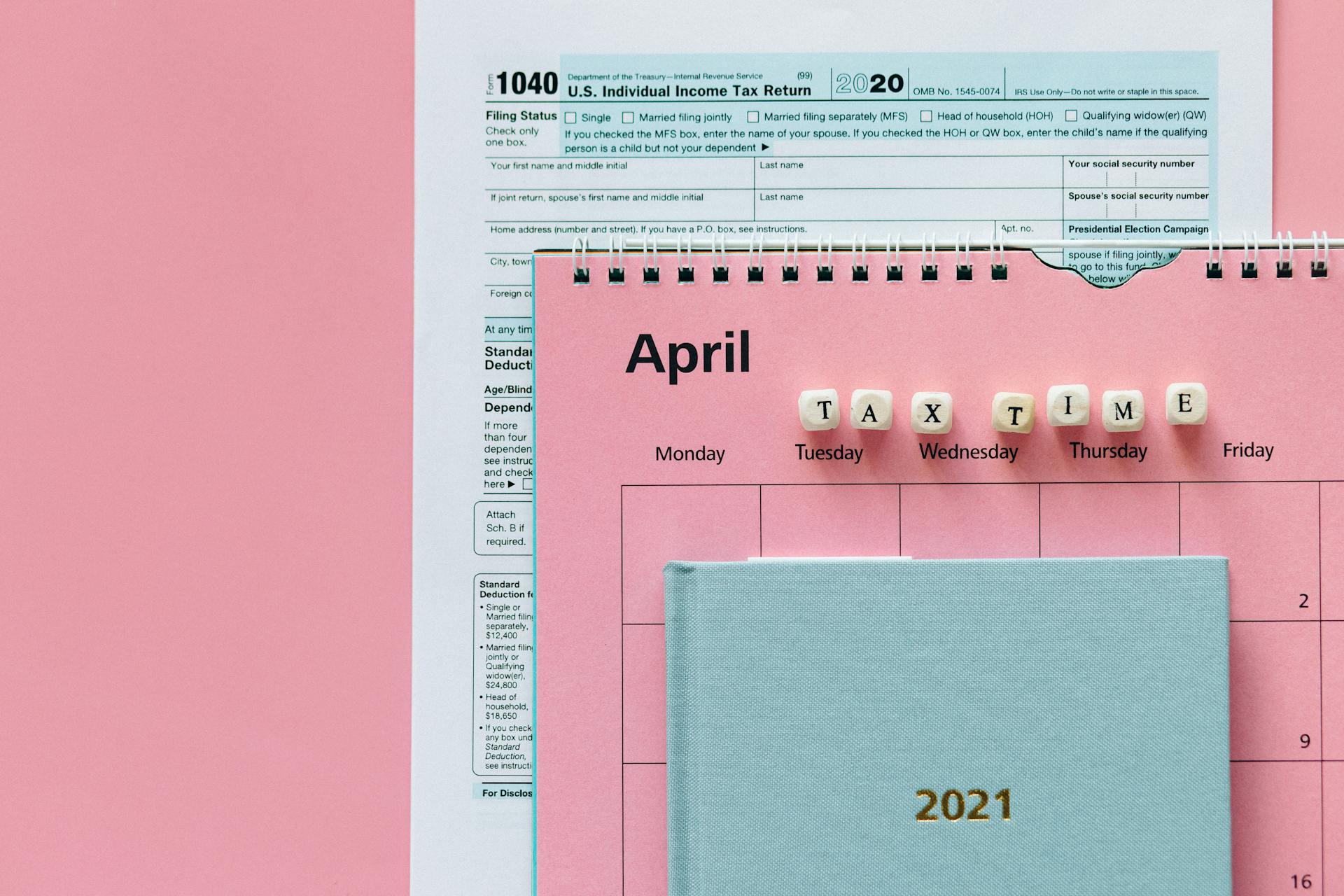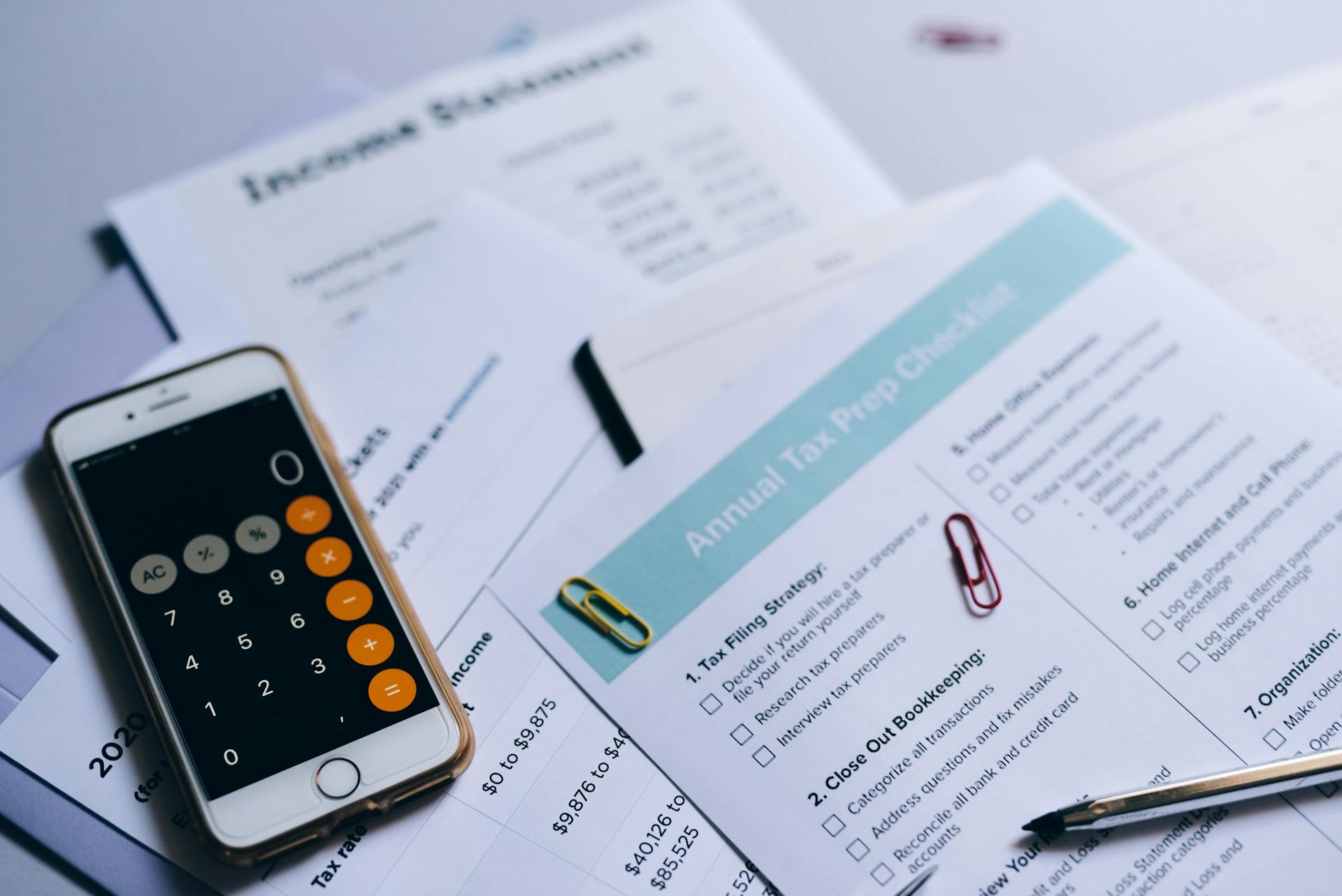
If you're struggling to pay your DC taxes, don't panic – there are options available to help you manage your debt.
The DC Tax Payment Plan allows you to make monthly payments towards your tax debt, giving you more time to pay off your balance.
This plan is available for tax debts of $100 or more, and payments can be made online, by phone, or by mail.
You'll need to apply for the payment plan by submitting a completed Form 551, Application for Extension of Time to File and/or Pay, along with a payment plan agreement.
Readers also liked: Real Time Payment Network
Payment Plans and Options
You can pay your DC taxes in a few different ways, but one of the most convenient options is to set up an installment plan.
If you can't pay your taxes in full, you can request an installment agreement from the Collection Division representative assigned to your case. You'll need to pay your current taxes as well, either through withholding or timely estimated tax payments.

You can pay your taxes online, by phone, or by mail. To pay online, you can visit the Credit Card Payment page or make an electronic check payment. You can also pay by phone, but you'll need to follow the instructions on the Credit Card Payment page.
If you choose to pay by mail, you'll need to fill out a D-40P Payment Voucher and make your check or money order payable to the DC Treasurer. Be sure to include your Social Security number, daytime phone number, and the tax year on your payment.
There are some fees to be aware of when paying by credit card: a 2.5% convenience fee will be charged by the third-party vendor. If your check is returned due to insufficient funds, you'll be charged a $65 fee.
Here are your electronic payment options:
If you're setting up an installment agreement for an amount over $5,000 or lasting more than 24 months, you'll need to provide additional documentation, including a PA-1 (for individuals) or PA-2 (for businesses), a current federal income tax return, and a balance sheet and profit and loss statement for businesses.
Worth a look: Psbank Sayre Pa
Installment Payments and Agreements

If you're struggling to pay your DC taxes in full, there is a way to make installment payments. Taxpayers can request an installment agreement from the Collection Division representative assigned to their case.
To qualify for an installment agreement, you must have filed all required tax returns. If you've failed to file a return, you're not eligible for a payment plan.
Installment agreements can be either full-pay or partial payment plans. A full-pay installment agreement will have you paying off your tax debt in full, while a partial payment plan will allow you to pay a portion of your debt before the collection statute of limitations expires.
The collection statute of limitations in DC is 10 years, but it's 7 years for Virginia state taxes and 20 years for Maryland state taxes assessed in 2019 and after.
Taxpayers who owe less than $50,000 in combined taxes, penalties, and interest may be eligible for a Streamlined Installment Agreement, which has a maximum term of 72 months.
Expand your knowledge: I M B Bank Share Price Today

Here's a breakdown of the requirements for installment agreements involving amounts larger than $5,000 or lasting more than 24 months:
- PA-1 (for individuals) or PA-2 (for businesses)
- Current federal income tax return of responsible individuals or the business
- Latest balance sheet and profit and loss statement (for businesses)
If you're approved for an installment agreement, you'll need to make timely payments to avoid having your wages or bank accounts seized.
Resolving Unpaid Tax Debt
If you owe taxes in Washington DC and can't pay them right away, there's a way to resolve the issue. An installment agreement is a payment plan that can be paid out over several months.
You can request an installment agreement when you don't qualify for an Offer in Compromise and it's clear you'll have to pay back your tax debt based on your financial situation. This is often the most straightforward way to resolve unpaid taxes for a Washington DC taxpayer.
The monthly payments for a full-pay installment agreement are determined by dividing the total amount of tax debt by the number of months it will be paid out. The IRS will approve or reject the application based on the amount of tax debt, the time remaining on the collection statute of limitations, and your current financial situation.
For your interest: M and T Bank Statements

In Washington DC, the collection statute of limitations is 10 years. However, in Virginia, it's only 7 years, and in Maryland, it's 20 years for tax debts assessed in 2019 and after.
Here are the key differences in collection statute of limitations for each state:
If you're not sure which option is best for you, consider reaching out to a tax professional or attorney for guidance. They can help you navigate the process and ensure you're taking advantage of the best possible solution for your situation.
Special Cases and Refunds
If you're struggling to pay your DC taxes, you may be eligible for a payment plan.
You can request a payment plan online or by phone, and it's free to do so. The DC Department of Taxation will review your case and help you set up a payment plan that works for you.
If you're unable to pay your taxes in full, a payment plan can help you avoid penalties and interest. You can make monthly payments towards your tax debt, giving you some breathing room.

The payment plan will include a monthly payment amount and a due date, which you'll need to stick to in order to avoid additional fees. You can also make extra payments towards your tax debt if you're able to.
If you're experiencing financial hardship, you may be eligible for a hardship payment plan, which can temporarily reduce or suspend your monthly payments.
You might like: Monthly vs Pay as You Go Zettle
Payroll Tax and State Agreements
In the District of Columbia, employers must file quarterly withholding tax returns, even if no tax is due for the quarter. These returns are due by the last day of the month following the end of the calendar quarter.
To file online, register and use the Office of Tax and Revenue (OTR) online portal. You can also file by mail by downloading the form FR-900Q and form FR-900P Payment Voucher from the OTR website.
If you're unsure about withholding tax payments, contact the District of Columbia Office of Tax and Revenue at [email protected] or call 202-759-1946.
Broaden your view: Credit Cards on File
Make Payroll Withholding Tax Filings Simplified:

Filing quarterly withholding tax returns in the District of Columbia is a straightforward process. You can file online through the Office of Tax and Revenue (OTR) portal.
To file online, you'll need to register and create an account. The returns are due by the last day of the month following the end of the calendar quarter. For example, the first quarter return is due on April 30.
To file by mail, you'll need to download the form FR-900Q and the payment voucher form FR-900P from the OTR website. Make the check or money order payable to the DC Treasurer, and include your FEIN, Withholding Account Number, and tax year.
Here's a summary of the mailing address and payment instructions:
Annual reconciliation returns are also required, and they're due by January 31 for the preceding calendar year. You'll need to file an annual reconciliation that summarizes the employee taxes you withheld during the year.
Recommended read: Difference between Annual Percentage Yield and Interest Rate

To file an annual reconciliation, you can either file online through the OTR portal or by mail by downloading the form FR-900A and the payment voucher form FR-900P. Make the check or money order payable to the DC Treasurer, and include your FEIN, Withholding Account Number, and tax year.
District of Columbia W-2s are due by January 31 for the preceding calendar year and must be filed electronically. You can file online through the OTR portal or by mail by downloading the form WT and attaching the wage and non-wage forms.
For another approach, see: Dc Wage Payment and Collection Law
Payroll State Agreements
Payroll state agreements can be a bit confusing, but let's break it down. A reciprocal agreement is an agreement between two states that allows employees who work in one state but live in another to request exemption from tax withholding in their employment state.
This means they wouldn't have income tax withheld from their paycheck for their employment state; they'd only pay income taxes to the state where they live. To qualify for this exemption, employees must complete and file a Non-Residency Certificate with their employer.
Employers should keep this certificate on file. The District of Columbia has reciprocal agreements with any other state, and non-resident employees should file Form D-4A.
You might enjoy: Saving Account Cd
Frequently Asked Questions
What happens if you file DC taxes late?
Filing DC taxes late incurs interest at 10% annual rate, compounded daily, and a late penalty of up to 5% per month until the maximum is reached. Learn more about the potential consequences and how to avoid them.
Sources
- https://otr.cfo.dc.gov/page/collection-payment-options
- https://pontiustaxlaw.com/dc-unfiled-tax-returns-lawyer/options-to-resolve/
- https://mytax.dc.gov/WebFiles/faq/faq.html
- https://pontiustaxlaw.com/vienna-tax/irs-collection-lawyer/installment-agreement/
- https://squareup.com/help/us/en/article/6494-district-of-columbia-employer-tax-information
Featured Images: pexels.com


